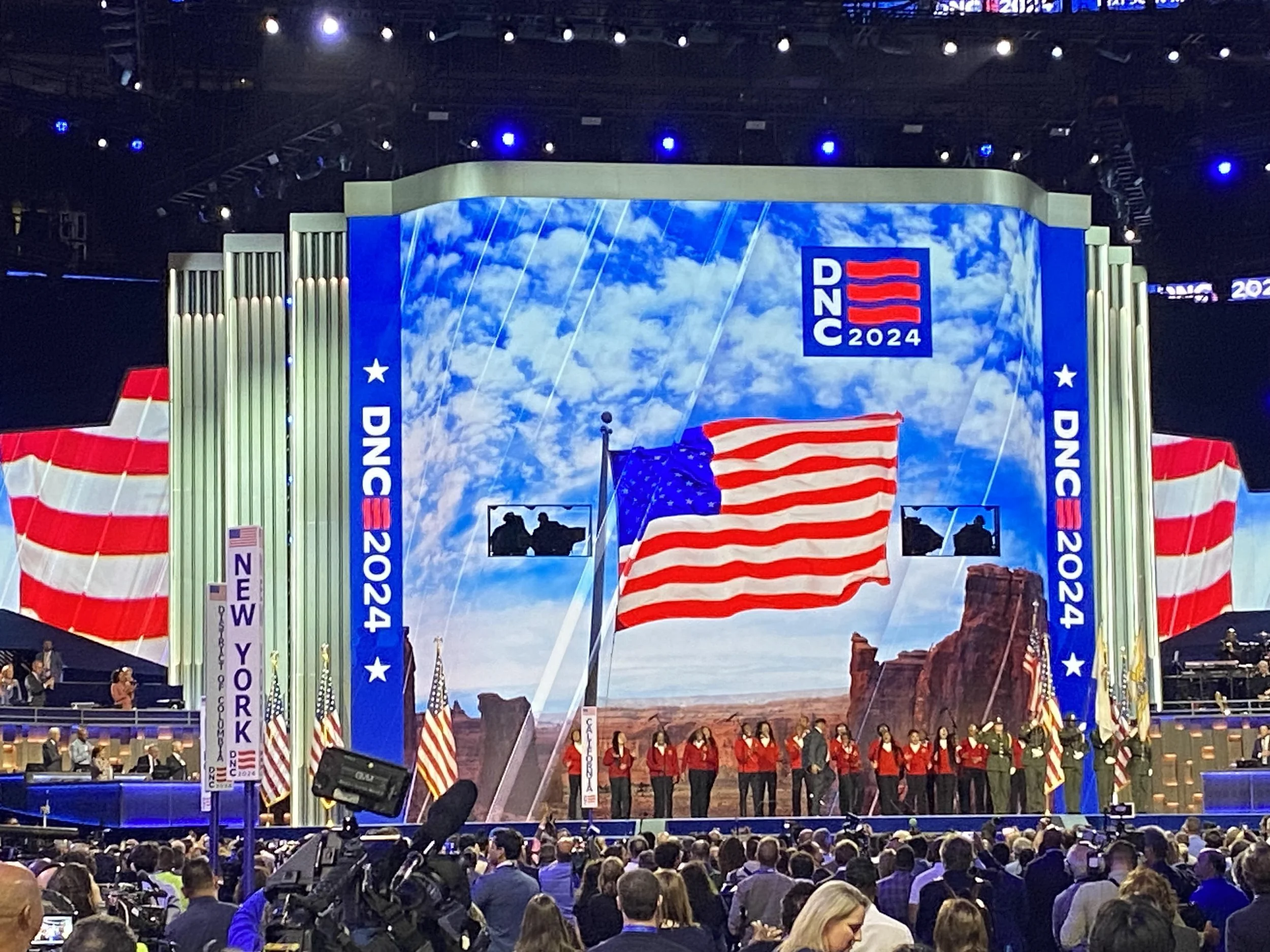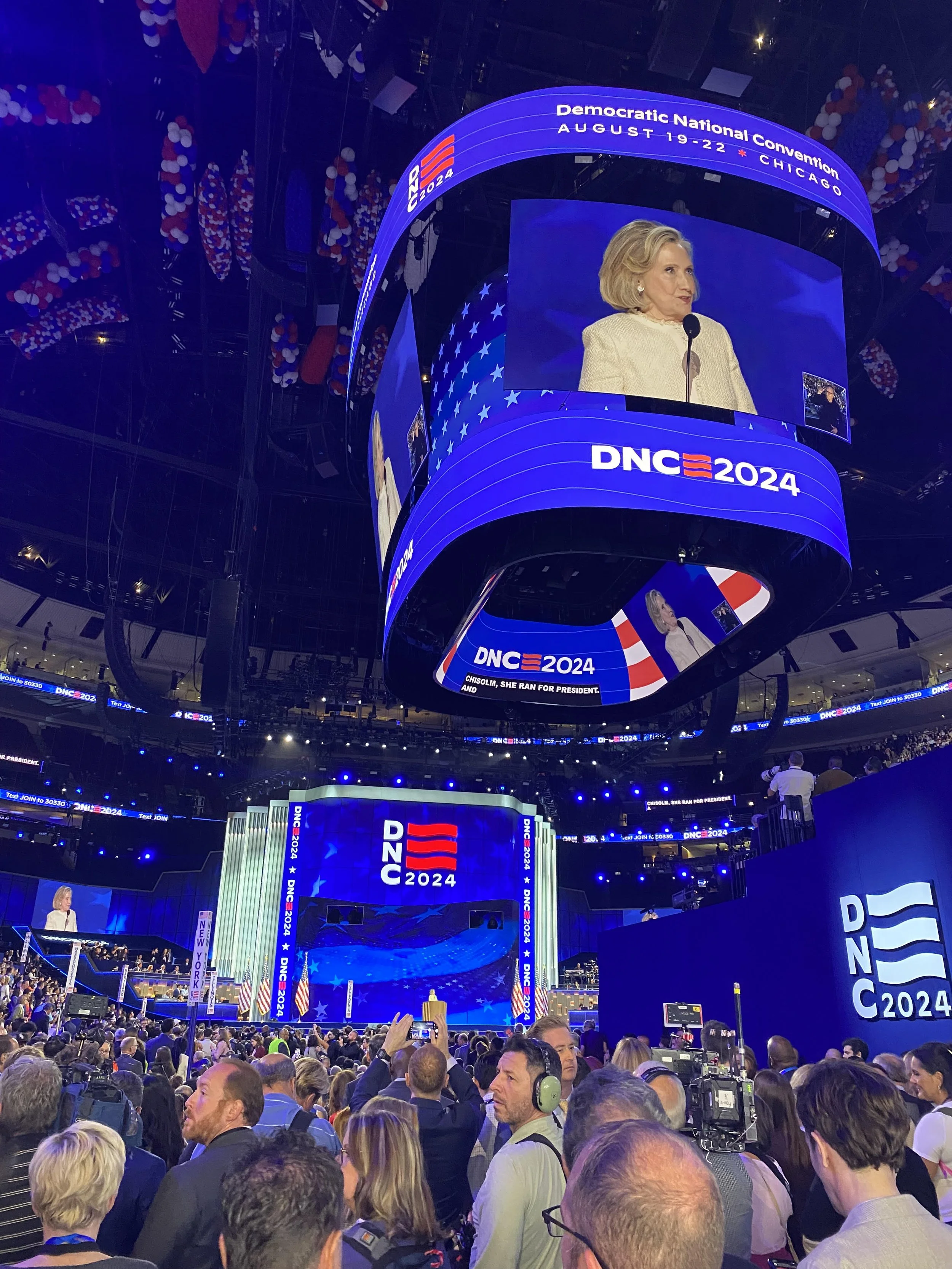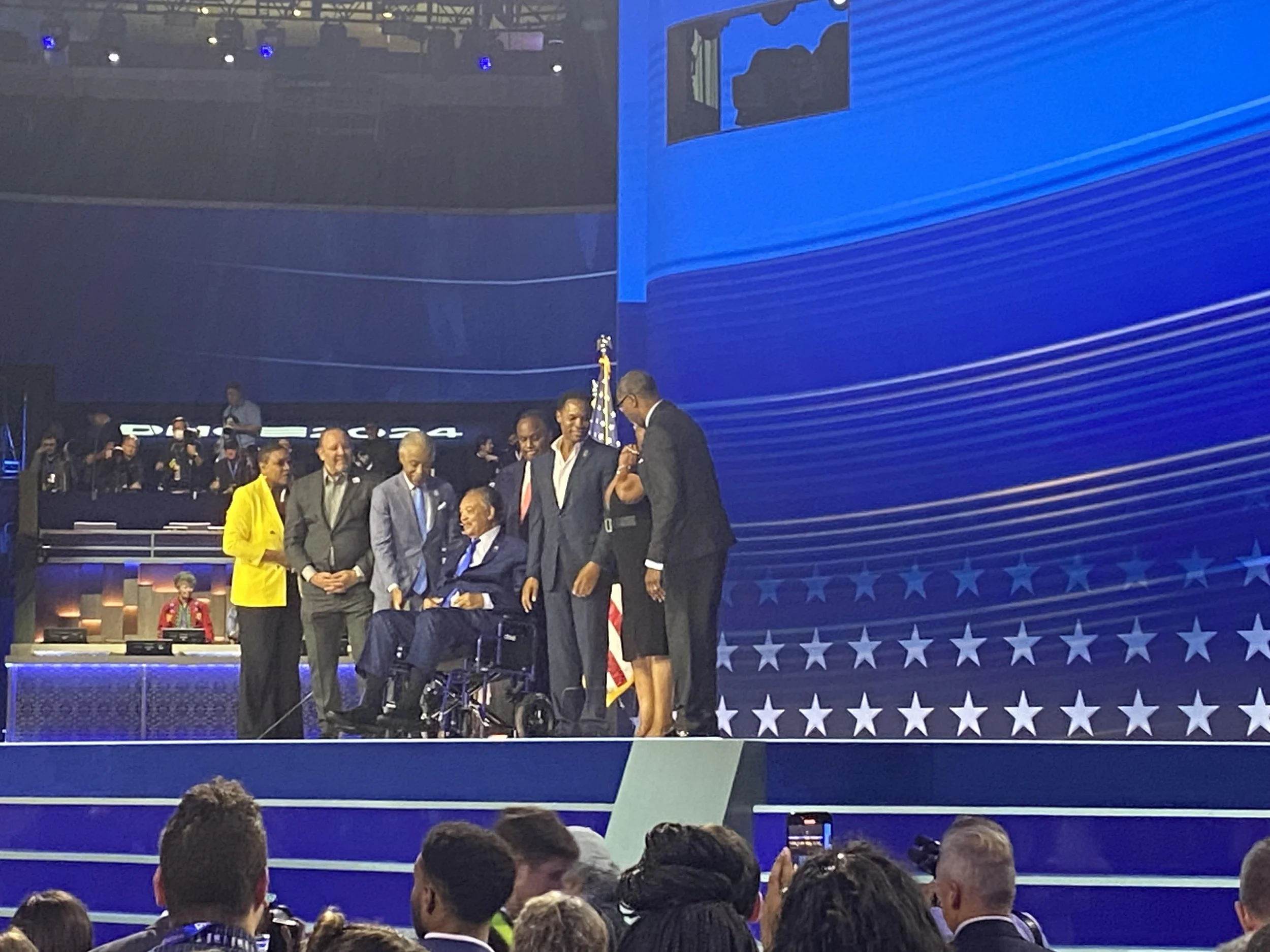Live from the DNC 2024: Analysis and Insights from Day One By Luke Perry
Party division is much less at the 2024 Democratic Convention than in 2016
Much has been made about party divisions over President Biden’s candidacy from the first presidential debate to the first night of the Democratic Convention. There was no evidence on the convention floor of disgruntled Biden supporters. This was a stark contrast to what I witnessed in 2016 when Bernie Sanders’ supporters were vocally and unapologetically critical of Hillary Clinton.
The Bernie-or-Bust delegates I spoke with then had no interest in voting for Clinton. Some were conflicted about the implications of voting for the Green Party. Most were angered and upset at the Democratic Party for “selling-out” to the insufficiently liberal party establishment.
Photo by Luke Perry
Limiting the margins in rural America a clear focus of the 2024 campaign
The Biden campaign, now Harris campaign, has devoted attention and resources to being competitive in a large group of battleground states. Quentin Fulks, Principal Deputy Campaign Manager for Biden and Harris, believes this strategic priority laid the groundwork for the Electoral Map shifting in recent weeks under Harris. The Vice-President is polling better than Biden in Nevada, Arizona, Georgia, and North Carolina, providing multiple paths to victory.
Traditional Democratic voting blocks, including young, Black, and Latino voters, have buoyed Harris’s numbers. Black voters will be pivotal in Georgia and North Carolina, who have the highest level of black voters in the country, around 30 percent.
The campaign is also focused on maintaining moderate Republicans who voted Democratic in 2020 and 2022 and maximizing Democratic numbers in rural communities. Fulks believes that decreasing Republican’s rural advantage even by 5 points could be pivotal in securing victories in battleground states.
This is reminiscent of Howard Dean’s 50 state strategy undertaken as DNC chair in 2005. Dean sought to build a presence and support candidates in traditionally Republican areas. The party now appears to be heading back toward greater rural outreach.
Quentin Fulks (Photo by Luke Perry)
The Harris Campaign is prepared for legal issues
The Democrats learned after the 2020 election the extent to which Donald Trump would deny the electoral outcome and seek to challenge the electoral results. Effective voter turnout is necessary for electoral success. The Harris Campaign is concerned about state and local efforts that hinder people’s right to vote.
The campaign has invested in a significant legal team to help address these issues. According to Fulks, who oversees this operation, one focus is fighting changes to local voting and electoral laws prior being enacted, so the campaign doesn’t have to ask for injunctive relief while awaiting the courts to rule.
Photo by Luke Perry
New York will be pivotal in Democratic efforts to retake the House
Minority Leader Hakeem Jefferies believes that New York races alone could potentially flip control of the House of Representatives. NY-22 is viewed as the cornerstone of these efforts, along with other key races in Central New York and Long Island.
Governor Kathy Hochul is working on rebuilding the state Democratic Party to help not only with these races but bolster candidates in local races as well. Hochul cited her work with Jefferies and Senator Kristen Gillibrand to create 35 field offices statewide.
According to Hochul, the state Democratic Party was most engaged in gubernatorial races in years past. Hochul wants to develop more sustained capacity and annually assist local candidates, including previously overlooked races, like local District Attorneys.
Photo by Luke Perry
Hillary Clinton gave one of the best speeches of her national political career
Hillary Clinton gave a well-written and flawlessly delivered speech, the most impressive of the evening and likely her political career.
Clinton highlighted key challenges and advancements of women in electoral politics. She spoke with grace, wit, and humility, stating that “progress is possible but never guaranteed,” and expressing the belief that “we’re not just electing a president. We’re uplifting the country” in supporting Kamala Harris.
I was on the GOP convention floor in 2016 and saw the first person with a “Lock Her Up” sign mingling about prior to start of the proceedings. At first bewildering, this became a mantra of Donald Trump’s 2016 campaign.
Clinton simply paused and smiled when the crowd loudly chanted “lock him up” eight years later in the wake of Trump’s 34 criminal convictions in New York. This was a surreal moment for modern presidential campaigns.
Photo by Luke Perry
Other speeches of note included Rep. Alexandria Ocasio Cortez (NY-14), who showed flashes of why she might be a future presidential candidate, perhaps after becoming a U.S. Senator. Ocasio-Cortez advocated for working people, stating that “Harris is for the middle class because she is from the middle class.” The second half of Senator (GA) Raphael Warnock’s speech displayed his abilities as a Baptist preacher. Rep. Jamie Raskin (MD-8) had the most pithy one-liners criticizing Republicans.
Other moments of note included Jesse Jackson receiving a standing ovation after being wheeled on-stage by family. Jackson helped to pave the way for candidates of color in presidential elections.
Several women shared concerns and hardships they experienced after Roe was overturned, including a young Kentucky woman who spoke about becoming pregnant at 12 after being raped by her stepfather. Absent Roe, state law can prohibit an abortion under these circumstances.
Photo by Luke Perry
President Biden’s speech was forceful but long
Biden took the stage after a heartfelt introduction from his daughter, which brought him to tears. The crowd adorned him with applause. Love and sacrifice were two prominent themes as delegates held signs “We Love You Joe.” Biden spoke of putting his country ahead of himself.
The president was largely on point, minus a few flubs, and clearly tried to speak authoritatively. Biden covered the full range of his policy accomplishments and sought to make a compelling case for why the country should support Kamala Harris.
Saying goodbye to party faithful after 50 years in public service is unlikely to brief. Cutting twenty percent would have strengthened the speech.
Harris popped out early in the evening, a pleasant surprise for the audience, and then again, after Biden spoke.
The conclusion of the evening marked the changing of party leadership in Democratic politics, at least until November.
Luke Perry is political correspondent for WCNY-TV and Distinguished Professor of Political Science at Utica University
Next Up: Analysis of Day Two










